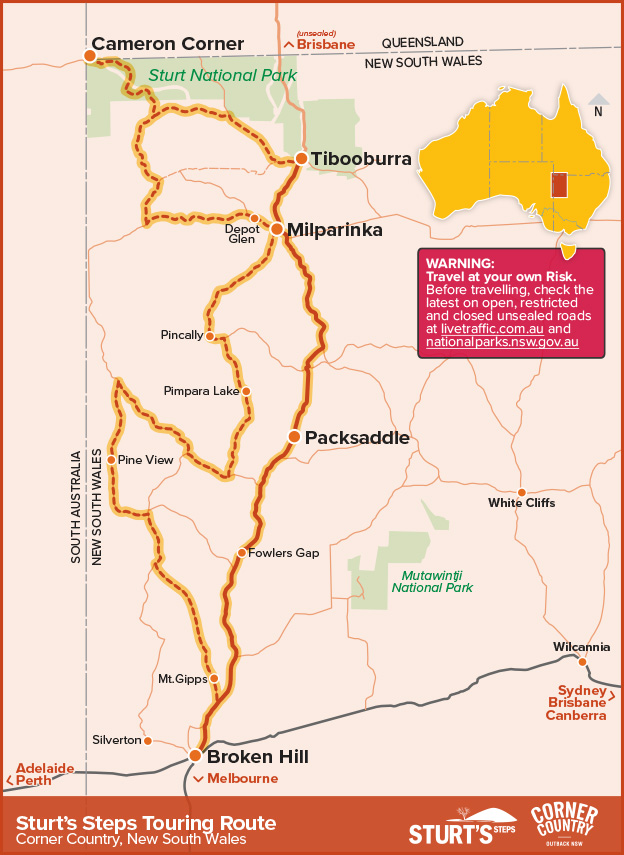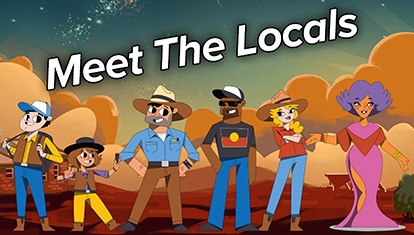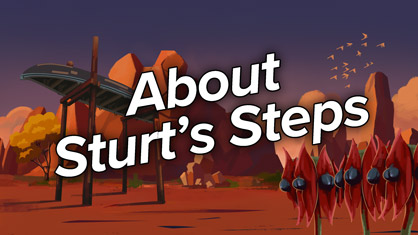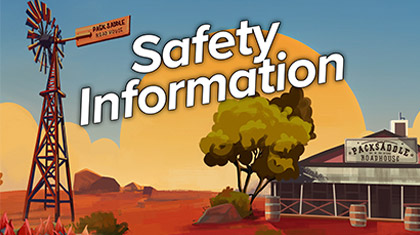Welcome to Tibooburra – Corner Country, New South Wales

Tibooburra is the most remote township in far western New South Wales and regarded with some pride as “the Capital of the Corner Country”. Its name is Aboriginal for “heaps of rocks” which perfectly describe the huge granite tors surrounding the outback community.
In 1845 members of Charles Sturt’s Expedition passed through the area on their way into Queensland, searching for water and a way forward to explore the inland. Squatters followed exploration, land was taken up and livestock introduced. Eventually some of the landholdings in the area would become the largest leases in the state.
Following on from discoveries on Mount Poole and Mount Browne, in April 1881 gold was found in the area. Within a year or so almost two thousand people were living and working the fields surrounding The Granites.
Water was always in short supply and prospecting was incredibly challenging. Miners built puddling dams and waited for rain to fill them in order to process their pay dirt, or built unique machinery to dry blow the dust away from their specks of gold.
Many found the summer heat excessive and relentless and the unusual geological structure of the goldfields baffling.
In the end mining operations ceased but the town endured. The town is the headquarters for Sturt National Park, has a resident police officer and a public school. The local health service operates from the refurbished original hospital building and the Royal Flying Doctor Service visits weekly or in emergencies.
There are two supermarkets with fuel outlets, two historic hotels and several camping and caravan and other accommodation places. The local sealed airstrip is located 5 km from Tibooburra and pick-ups can be arranged.
Local events are popular, with an annual rodeo and bikekhana and New Year’s Eve activities while locals enjoy community events for entertainment or the arts. Those who call Tibooburra home do so because they love it. Visitors do also.







